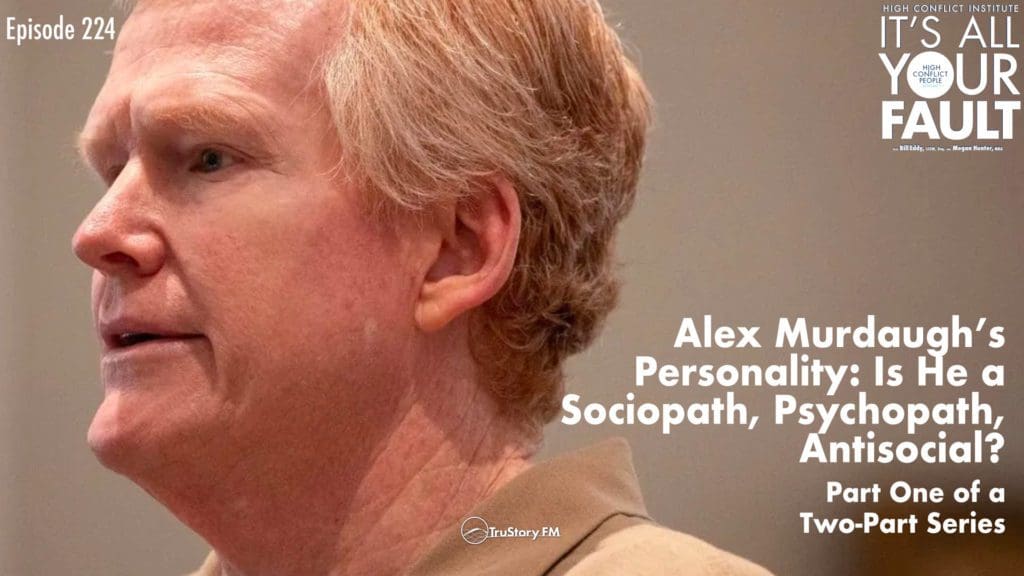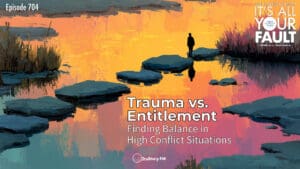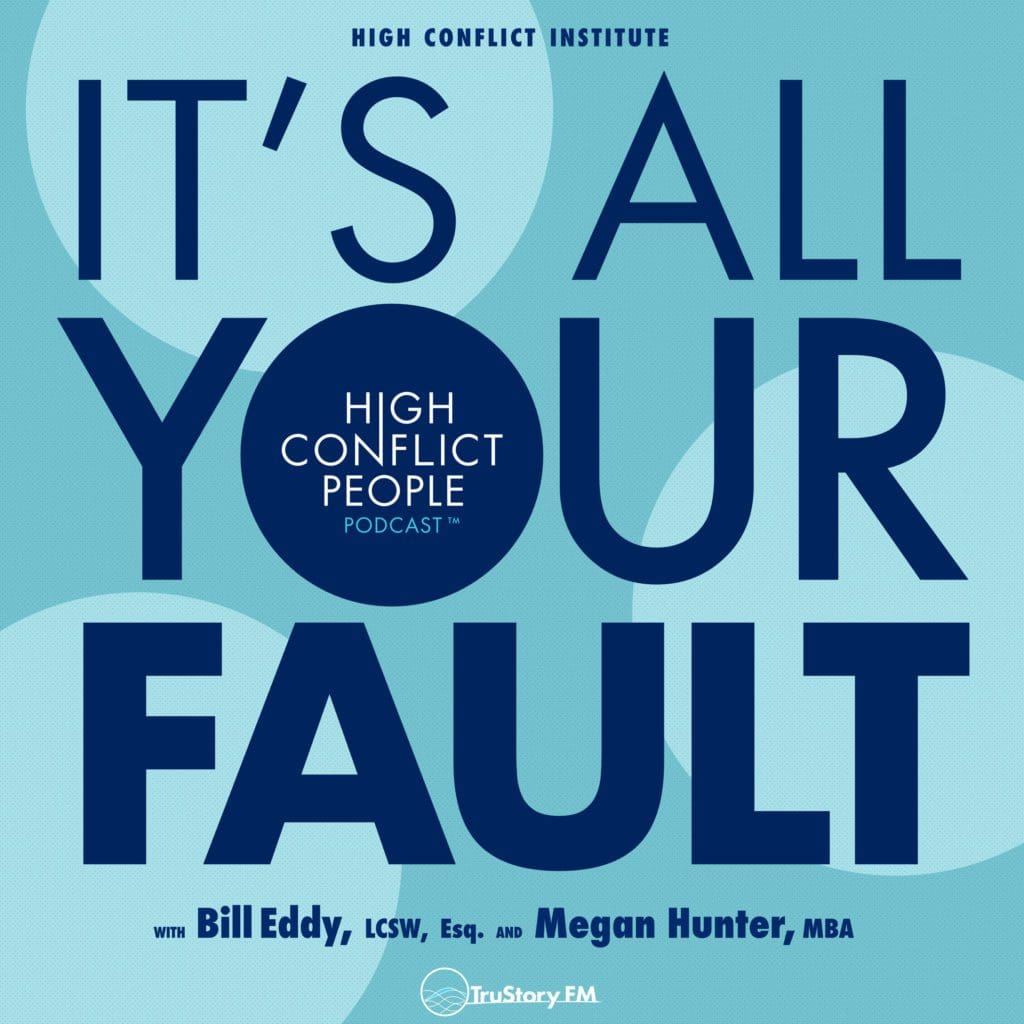The Alex Murdaugh murder case has captivated people in the U.S. and around the globe. Technology allowed us to see with our own eyes and hear with our own ears the actions and voice of a man with a family and legal dynasty before and during his double murder trial for killing his wife, Maggie, and son Paul. Is Alex Murdaugh a sociopath, psychopath, narcissist, or did he have antisocial personality disorder? Although Bill and Megan don’t diagnose anyone, they discuss the Alex Murdaugh case in this episode through the lens of high conflict and by examining the criteria of other mental health disorders via the DSM-V-TR.
In this first episode of a two-part series, Bill and Megan discuss the Alex Murdaugh case in relation to:
- the role of remorse, empathy, trust and aggression
- how people who commit such heinous acts see the world—and the hostility bias
- can he love his family and still murder them
- clues to his personality
- why he didn’t look at his surviving son Buster after sentencing
- what he may have been feeling or experiencing as witnesses testified against him
- the impact his opioid addiction may have had on his actions or whether it was an excuse
- the pattern of lying, secrets, and gaining sympathy
In the next episode, we’ll talk about how his colleagues and others around him were conned and how to avoid being conned yourself.
Links & Other Notes
- BOOKS
- ARTICLES
- COURSES
- Our website: https://www.highconflictinstitute.com/
- Submit a Question for Bill and Megan
- All of our books can be found in our online store or anywhere books are sold, including as e-books.
- You can also find these show notes at our site as well.
Note: We are not diagnosing anyone in our discussions, merely discussing patterns of behavior.
- (00:00) – Welcome to It’s All Your Fault
- (00:34) – The Trial of Alex Murdaugh Part I
- (01:34) – Background
- (04:32) – What We Saw During Trial
- (07:51) – Caught in a Lie
- (10:30) – Possible Take
- (16:13) – Didn’t Look at Son
- (19:07) – Opioid Addiction
- (21:43) – Can He Love Them and Still Kill Them?
- (24:49) – In Defense of Narcissists
- (25:36) – What Was He Thinking?
- (27:56) – Mistakes? Signs?
- (30:44) – Born With Disorders
- (32:49) – Overcoming the Con
- (35:32) – When Pressured
- (38:24) – Closing
- (39:20) – Reminders & Coming Next Week: How to Avoid Being Conned











